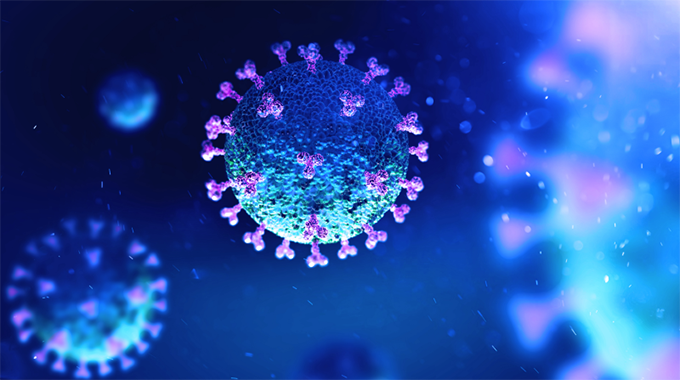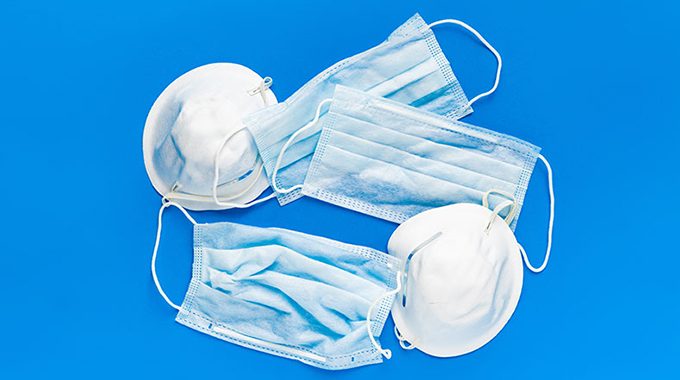Pfizer Antiviral Drug May Be 90% Effective Against Severe COVID-19: What to Know

- Pfizer says its antiviral drug, Paxlovid, was nearly 90 percent effective at preventing severe COVID-19 symptoms when given to high-risk participants.
- The drug interferes with the ability of certain enzymes to break down proteins, which can keep a virus from making copies of itself.
- Clinical trial results also show Paxlovid is highly effective against SARS-CoV-2 variants of concern (VOC) as well as other types of coronaviruses.
This month, drugmaker Pfizer announced its new oral antiviral treatment significantly reduced the risk of hospitalization and death from COVID-19.
Results from the company’s phase 2 and 3 clinical trials found the drug, called Paxlovid, was nearly 90 percent effective at preventing severe disease symptoms when given to high-risk study participants.
The drug was so effective in early research that the trial was stopped so the data could be submitted to the Food and Drug Administration (FDA) for emergency use authorization.
No participant who received Paxlovid died
The Paxlovid trial included more than 1,200 participants with a coronavirus infection at higher risk of developing severe COVID-19.
The findings, which are not yet peer reviewed, show that participants who took Paxlovid were much less likely to be hospitalized than participants who received placebo pills.
Critically, no participant given the antiviral pill died, but 10 who received placebo pills did, according to results summarized in Pfizer’s press release.
“Today’s news is a real game-changer in the global efforts to halt the devastation of this pandemic,” Albert Bourla, chairman and CEO of Pfizer, said in a statement.
“These data suggest that our oral antiviral candidate, if approved or authorized by regulatory authorities, has the potential to save patients’ lives, reduce the severity of COVID-19 infections, and eliminate up to nine out of ten hospitalizations,” he said.
While the drug worked well in clinical trials, Dr. Eric Cioe-Peña, director of global health at Northwell Health in New Hyde Park, New York, told Healthline “real life” is different.
“Trials are never exactly resembling real life data,” he said, “especially in oral medications where real-life use may include missed doses, and so forth.”
How it works
According to Pfizer, Paxlovid is a specifically designed SARS-CoV-2-3CL protease inhibitorTrusted Source. This means the drug interferes with the ability of certain enzymes to break down proteins, which can keep the coronavirus from making copies of itself.
“Antiviral drugs are drugs that inhibit virus’s ability to infect or replicate inside our cells,” Cioe-Peña said.
He explained that this type of drug can slow a virus’s ability to replicate and allows our immune system to “catch up” before we experience serious effects.
Early detection is critical for antivirals to work
Glatter pointed out that these drugs rely on early disease detection for their effectiveness.
He warned that absent an adequate supply of accurate — and widely available — rapid tests allowing for quicker disease detection, “it will do no good if people need to endure prolonged waiting times after onset of symptoms before they begin such antiviral therapies.”
Glatter noted another important issue is whether these antivirals will be able to reduce COVID-19 transmission as opposed to just disease progression.
As promising as the new antiviral treatments seem, experts say they’re not the way we’ll get past the pandemic.
“By itself, the drug will not end the pandemic,” Glatter said. “Rather, under ideal conditions, the key to ending it is through vaccination of at least 80 percent of the global population to achieve herd immunity.”
However, Glatter believes this is unlikely to occur.
“A more realistic scenario is that COVID-19 will become endemic, with ongoing local outbreaks mainly among the unvaccinated,” he said. “An annual vaccination against COVID-19 may be essential in the years ahead.”
The bottom line
Pfizer announced promising results for its antiviral COVID-19 treatment, with clinical trials showing the drug nearly 90 percent effective at preventing hospitalization and deaths from COVID-19.
Experts say while the results are promising, without adequate supplies of rapid tests for COVID-19, these drugs won’t be used effectively.
They also emphasize that COVID-19 antiviral drugs aren’t the way we’ll end the COVID-19 pandemic.
Rather, vaccinating at least 80 percent of the population will end the pandemic.










Comments